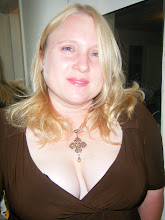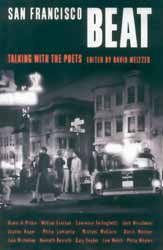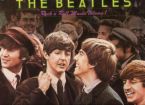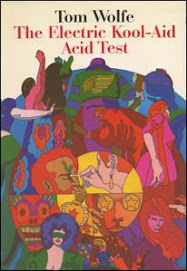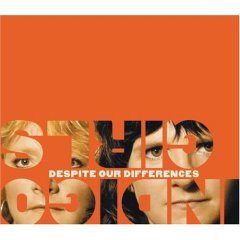Wednesday, May 09, 2007
I was thinking about my "romantic landscape' the other day, as I am prone to do, and I was making some connections between that and certain duties of my job. I was thinking about how I have this ability to compartmentalize sentiment, which is a trait that I feel is sometimes necessary in the kind of work I do. Often in working in the veterinary field, or with animals in general, you have to put aside emotional feelings in order to accomplish a task. Mostly I am referring to euthanasia. As a person who performs or assists with euthaniasia on a regular basis, you have to be able to put aside your grief or sadness over the loss of animals, or else you are in danger of becoming depressed, burned out, or suffering from compassion fatigue. There are many reasons and situations in which animals get euthanized, and most are very sad: a group of animals gets "culled", like at the facility where I work now for being unsellable, or at an animal shelter due to failure to be adopted and lack of room, an animal is old and sick and needs to be put out of its misery, an animal is hurt beyond the owner's ability to pay or cope, or the owner cannot deal with a physcial or mental problem the animal is having. Sometimes the owners are next to you, weeping at the loss of a family pet, and sometimes no one is weeping and the bodies are piling up on the floor, which is also sad.
I am very good at euthanasia. I am good at "turning it off", not allowing myself to feel unmeasurable pain, and being able to perform the duties asked of me. I also believe, though, in helping the spirit of the animal pass, and in dying with dignity. I hold their paws, I pet them and soothe them, I tell them they have been very good and have been loved so much, and that it is okay to let go. I tell them anything I know about their family or their history, how it showed how wonderful they were. I tell them their owners are letting them go to this wonderful place because they love them so. I tell them something nice about the way they look or act. I let the last words they hear be soothing words of comfort and love, even if they have no owner and nobody loved them. I do this because I love all of them collectively, even if I have never seen them before.
And myself, I put that love in a box. I pack my emotions away in that box in my heart and seal up the edges with strong tape. I refuse to look at it. I pretend it is not there. That love is there, and this is here, and if it is over there and I don't look at it, it doesn't hurt.
Sometimes I get so good at this game, I almost believe it. I sometimes think I put it so far away I become desensitized, and I wonder if I have become heartless. And so sometimes I let myself cry. I go with it, and it makes me feel real again, and reminds me that I care. I let myself grieve once for a Lab that I hardly knew, who belonged to a man I knew well. I knew how much he loved his dog and how he tried so hard to keep her alive, and it reminded me of how much I loved Rascal, and when we were done with her, I sat in a dark exam room, snuggling my friend's poodle and wept for an hour or more, weeping for all the dogs I never cried for.
Thinking about putting the sentiment in a box and forgetting it, putting that aside while I continued to function, reminded me of my love life before getting married, back when I was a serial cheater. Some people might not understand why I was able to be with a man I loved one night, and a man I was also sleeping with another night. When I was with each of them, they were all that existed, and I was having fun and was able to put my emotions for somebody else in a box and let them go.
Some people can't do this. Like my exboyfriend for instance, who says he cannot be friends with me anymore because it brings back old memories and interferes with his relationship with his wife.
I wish he could, because I believe in staying friends with the people I once loved. To me, the friendship is valuable because I still see the good in them and respect them. I keep my old memories in that box, along with the feelings I had for them, and don't look at it when I am with them, so I can just be friends in the here and now. Sometimes I wish everyone had that ability.
Tuesday, May 08, 2007

Senses
I've been doing some thinking about compatability between people, and I have decided that sense of humor is overrated. Not that I don't think it is important, but I find it odd that it shows up on the top five things both men and women are seeking in a mate, and it is the only "sense of" that shows up. I think there are other "senses" people can have that might actually be more beneficial in the long term, or maybe more suited for individuals as opposed to the masses. I am speaking from my personal experience, which I think is the starting point for most people when deciding whether or not they agree with something.
In my experience, I have decided sense of humor is not on my top five list of qualities I would seek in a long term mate. I would rate sense of adventure higher, or even sense of compassion. Why don't those "senses" come up on a list?
Here are some that I think are left out when determining compatability, some "senses" people may possess along a spectrum:
Sense of Self Sense of Purpose Sense of Adventure
Sense of Wonder Sense of Compassion Sense of Entitlement
Sense of Direction Sense of Community Sense of Security
I think it would be interesting to rate the important of these to you along a spectrum, and try to match with someone who also shares some of these same qualities. But then you get into the question of whether it is better to be similiar or complementary. When breeding animals, you want to seek mates that share the good features and complement each other on the weaknesses.
If I have a sense of humor deficiency (like some say that I do - haha - I disagree becasue I happen to find myself hilarious, and if you can laugh at yourself, I would tend to think you have a sense of humor), is it better to be paired with someone who has a greater sense of humor, so they can lighten you up? I think it would depend on how much value that other person places on sense of humor in a mate.
There are also other "senses" in which the description comes first, such as "people sense", "common sense", "horse sense", "animal sense". These could also be important.
If I had my life to do over again, I would spend much more time comtemplating compatability before choosing a mate, and then I would want to make my choice based on reason, more than emotion. In my life so far, it seems I made an emotive decision and then just hoped for the best. Emotion versus reason...it sounds like some Plato inspired rambling, the "old quarrel between philosophy and poetry".
Welcome to my dichotomy.
Thursday, May 03, 2007
Tools
I feel like Daniel-son. The past few days, I have been having my moments with my Mr Miyagi, aka Martinez, who has been suddenly and silently appearing at my side, omnipresent and omniportent, and guiding me to the most elementary of tasks with his halting English. Mostly he gestures to me. Without my realization, he sees me struggling with something and shows up to give me the proper tools to do the job. Today he surprised me with a crescent wrench of my very own. Yesterday it was my own cart, to making the task of sanitizing the monkey toys easier. He gives me the tools to conquer boredom, as Mr Miyagi gave Daniel the tools to conquer evil. It makes me think about, among other things, the tools, both physical and mental, that we bring to the table to complete our missions in this world. Without the right tools, we cannot do what is asked of us.
I thought about this the other day, before the gift of the crescent wrench, when I was trying to unscrew hanging toys from the monkey cages with a huge old cresent wrench that kept slipping. For some reason, it reminded me of an incident when I was just learning how to do jugular sticks on dogs. The girl who was training me, Kelly, had shown me how to find the jugular by sight. I had gotten pretty good at eyeing it, and so she was having me stick everything. We came to a white Standard Poodle. This should have been an easy stick. Standard Poodles have great big veins that pop up easily, and the white fur should have made it even easier. I tried and tried, but could not get a feel on the vein. Kelly kept pushing me to keep trying and not to give up, and I was failing miserably, when the doctor got frustrated and cut into the action. I think he was mad at Kelly for pushing the issue, and when he went to make the stick, he said "Well, no wonder. This dog does not have a palpable vein." He was saying it loudly to make me feel better, and to make Kelly feel bad for forcing failure on me by offering me a challenge I was not up to. However, really what I took away from that, in retrospect, is that she was expecting me to do a job with the wrong tools. She had only given me one tool to try on all cases, when really, when it comes to drawing blood (at least on animals), there are three: sight, feel, and anatomical guess. She had failed to give me all three tools before asking me to be able to complete the more challenging cases. Instead of giving me a lesson in failed perserverance, she could have used it as a learning opportunity, a time to introduce the next tool. I thought about that a lot when working at the Animal EC, on the occasions I drew blood on an animal with veins that I could not see, I could not feel, and I had to use the last tool and "go blind", knowing that it had to be in that area somewhere, and if I used my landmarks correctly, I could find it.
What are the tools of your trade? How did you acquire them?

